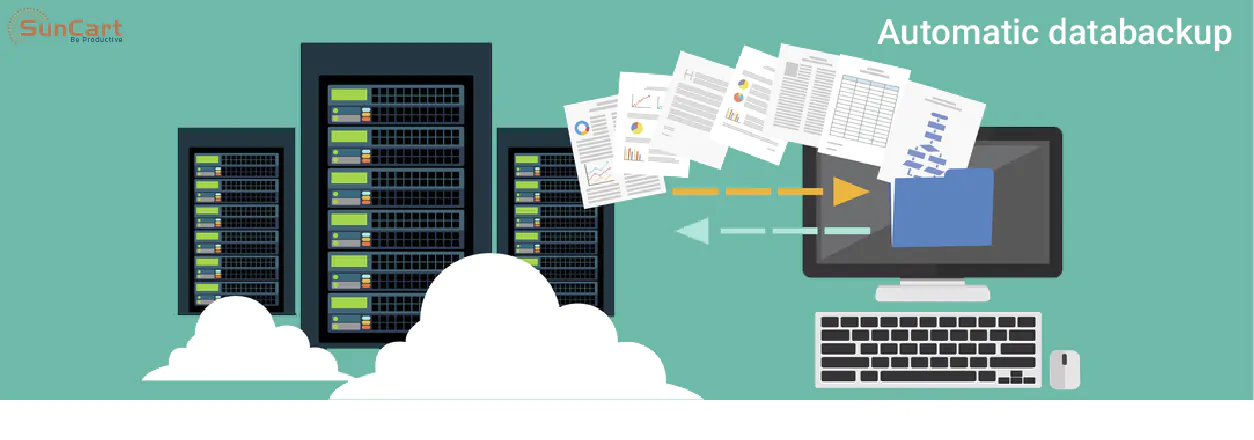We use cookies to make your experience better. By continuing to visit this website you agree to our use of cookies. More information can be found in our Privacy Policy.
AWS Automatic Backup

AWS Backup is a fully managed backup service that makes it easy to centralize and automate the back up of data across AWS services in the cloud as well as on-premises using the AWS Storage Gateway.
Using AWS Backup, you can centrally configure backup policies and monitor backup activity for AWS resources, such as EBS volumes, RDS databases, Dynamo DB tables, EFS file systems, and AWS Storage Gateway volumes.
AWS Backup automates and consolidates backup tasks previously performed service-by-service, removing the need to create custom scripts and manual processes. With just a few clicks in the AWS Backup console, you can create backup policies that automate backup schedules and retention management.
AWS Backup provides a fully managed, policy-based backup solution, simplifying your backup management, enabling you to meet your business and regulatory backup compliance requirements.
To successfully meet the challenge of storing data in the cloud using AWS, IT professionals need to familiarize themselves with the management of Elastic Block Store ( EBS) volumes and snapshots.
EBS
Elastic Block Store (EBS) is a raw block-level storage service designed to be used with EC2 instances. When mounted toEC2 instances, EBS volumes can be used like any other raw block device: they can be formatted with a specific file system, host operating systems and applications, and have snapshots or clones made from them.
Every EBS volume that is provisioned will be automatically replicated to other storage devices in the same Availability Zone inside the AWS region to offer redundancy and high availability (guaranteed 99.999% by). AWS also offers seamless encryption of data at rest (both boot and data volumes) using -managed keys or keys customers create through Key Management Service (KMS).
EBS provides the following EBS Volume Types
EBS provides the following volume types, which differ in performance characteristics and price, so that you can tailor your storage performance and cost to the needs of your applications.
The volumes types fall into two categories:
- SSD-backed volumes optimized for transactional workloads involving frequent read/write operations with small I/O size, where the dominant performance attribute is IOPS.
- HDD-backed volumes optimized for large streaming workloads where throughput (measured in MiB/s) is a better performance measure than IOPS.
Benefits of EBS
Reliable, secure storage
Each EBS volume provides redundancies within its Availability Zone to protect against failures. Encryption and access control policies deliver a strong defense-in-depth security strategy for your data.
Consistent, Low-latency Performance
EBS General Purpose (SSD) volumes and EBS Provisioned IOPS (SSD) volumes deliver low-latency through SSD technology and consistent I/O performance scaled to the needs of your application.
Backup, Restore, Innovate
Protect your data by taking point-in-time snapshots of your EBS volumes providing long-term durability for your data. Boost the agility of your business by using EBS snapshots to create new EC2 instances.
Geographic Flexibility
EBS provides the ability to copy snapshots across AWS regions, enabling geographical expansion, data center migration, and disaster recovery providing flexibility and protecting for your business.
Optimized Performance
An EBS–optimized instance provides dedicated network capacity for EBS volumes. This provides the best performance for your EBS volumes by minimizing network contention between EBS and your instance.
Conclusion!
EBS is one of the most important storage formats available in the public cloud today, so it is important to make sure you know all the ins and outs of this versatile AWS offering. In this article, we’ve looked at a number of ways that you can manage, configure, and augment your EBS volumes, including how to get better performance, higher levels of protection, and optimized costs with Cloud Volumes ONTAP for AWS.
